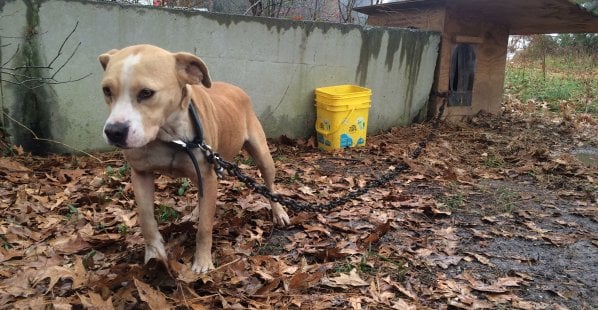How Does PETA Kids Feel About Horseback Riding?
It’s lunchtime at school, and as you bite into your apple, your friend Lucy sits down next to you. She puts her books on the table, and you notice a collage of horse pictures covering her binder. “Wow,” you say. “I didn’t know you like horses, too.” “Of course I do,” she says. “They’re my favorite.” As you both look at all the photos, she tells you about the horseback riding lessons that she signed up for and invites you to go horseback riding with her and her family on the weekend at a local stable. You’ve never been horseback riding or even had a chance to decide whether you’d want to, but something doesn’t feel right about it.
You get a knot in your stomach and feel unsure about whether you want to do it. “Lucy,” you say, “do you think horses want us to ride on them?” She looks away and then down at the horse photos that cover your own binder—in all of yours, the horses are free of saddles and harnesses and there are no humans on top of them.

Even though we can’t ask horses directly if they want us to ride them or not, we can use something called empathy to find the answer. Empathy is when you put yourself in someone else’s position or place—like in the place of a horse! We can ask ourselves, “If I were a horse, would I want someone riding on top of me whenever they wanted? Would I want to be left alone for days on end with no freedom?” Probably not!
When we go horseback riding, we make a choice to ride on the back of the horse. Unfortunately, horses aren’t given a choice—they’re forced to carry us. Some are also forced to spend most of their lives trapped inside stalls in stables just waiting for their “owners” to visit them and give them the love and attention that they deserve. By choosing to go horseback riding, we’re making horses do something for us that doesn’t benefit them at all. We’re also possibly forcing them to live somewhere that they don’t want to be.

Horses are herd animals—in nature, they spend time with other horses in large groups, graze in meadows, play, and travel great distances. They don’t want to do the things that humans ask or expect of them, like carrying people on their backs, pulling them around in carriages, and running in races for our entertainment. They have their own needs, wants, and interests. Always remember: No animals—whether they’re horses or chickens—are here for us to use. They exist for their own reasons and have their own languages and cultures. We should let them be free.
We can still connect with the companion horses we take care of and have loving relationships with them without riding on their backs. We can also visit them at sanctuaries and bring them treats that they enjoy, sharing a special moment or two with these graceful animals. ??




Under 13? Ask your parents bee-fore you continue!